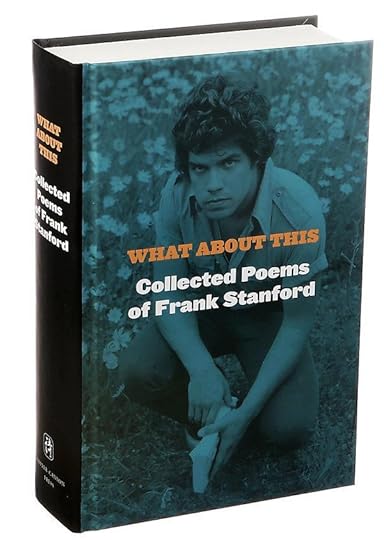What do you think?
Rate this book


764 pages, Hardcover
First published April 7, 2015

Most books of poems are far too short.first two stanzas of poem 22
It's hard to get your money's worth.
How does it make sense in the marketplace
To pay twelve quid for sixty pages?
Or fifteen euros, or twenty bucks?
So poets are shit out of luck.
Hate to tell you, but you're going to die.
Quite soon. Me, too.
Shuck off the wisdom while it's warm.
Death does no harm
To wisdom.
It continues to be fashionable to mourn the death of ritual.first stanza of poem 10
We miss the Neolithic ochre, smoking censers, silly hats
Cthulhu and Harryhausen prayers, all the mystic flap.
Death looks a lot like success.Poem 42 in its entirety
As in, "I killed that test"
"She slays me" and the rest—
Though it's the act and not the state
Whose power we appropriate,
All us murderous wannabes
In our casual hyperboles.


The Neighbor's Wife
Four a.m. and she's still gone
But I'm not going to call.
It's not so bad, until just before morning,
When I see a truck driver
Take a smoke out of his lips
And throw it out the window
And I watch it go to pieces
All over the road.

Many of these poems seem as if they were written with a burnt stick. With blood, in river mud. There is something thankfully unexamined in their execution. I say "thankfully" because we have been through a long century of self-consciousness and irony, and while their brand of rigor and suspicion have brought intelligence to American poetry they have also brought rigor mortis, they have deadened the nerves and made poets fear the irrational.
Putting Up Fence
I believe the moon wades a creek
Like an albino with a blade
Fixed to a stick.
It rises, red as a place
Where a chigger's been.
Voyeur in the loft, leaving your gum
Stuck to a fork in the barn,
Like a porter paid to listen
With his head in a portal
Of a ship returning before it's due.
Then I come down the road with ice.
